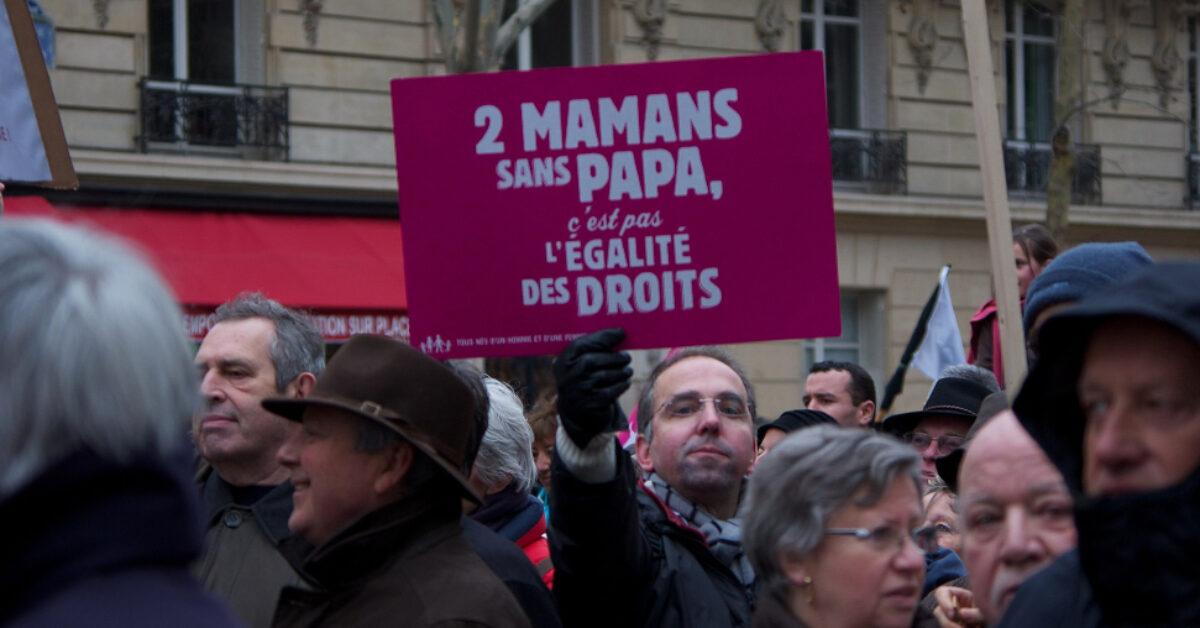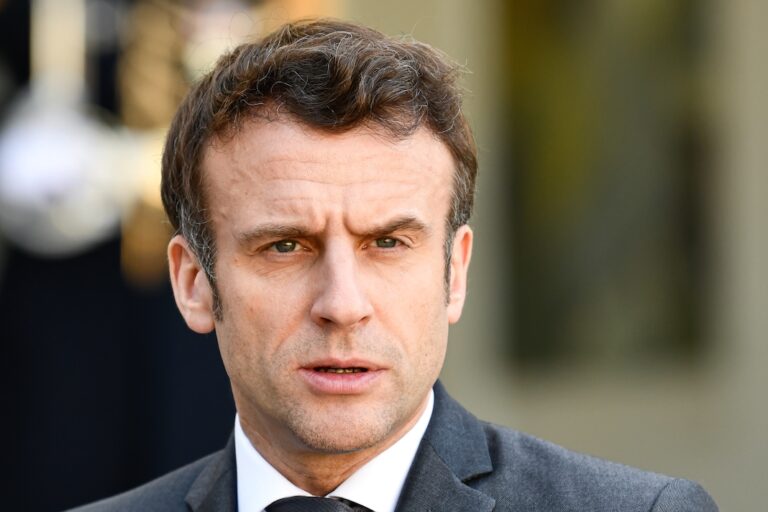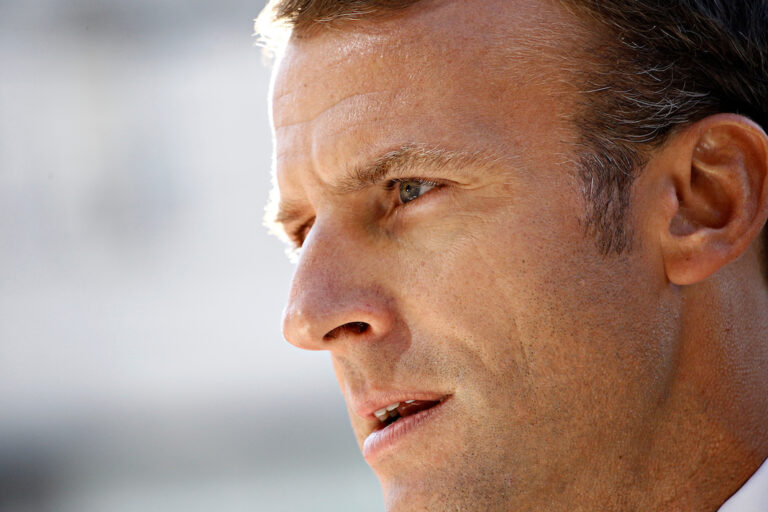In a country known for its generous healthcare system and secular political establishment, it was a bit of a surprising sight. On Sunday, tens of thousands of protesters — around 42,000 according to the police or 600,000 according to organizers (and, for fairness, an estimated 74,000 according to a French media watchdog) — descended upon the streets of Paris to oppose a proposed social policy that would legalize In Vitro Fertilization (IVF) for non-heterosexual couples.
The protest was perhaps the boiling point in the more than two-year-long debate over IVF, or PMA (procréation médicale assistée) in French, which is currently being considered in the upper house of the National Assembly.
Here’s what you should know about the debate that is shaking France:
So, what happened Sunday?
As numerous French media outlets reported, thousands of protesters bused and even car-shared their way to the capital early Sunday morning to protest Emmanuel Macron’s IVF policy. Many — but certainly not all — came to the protest for religious reasons, though as The Atlantic’s Rachel Donadio explains, the debate is more broadly about French identity.
The protest was organized by the group La Manif Pour Tous, which also mobilized protesters against France’s gay marriage legislation back in 2013. According to The Guardian, a number of right-wing political figures were at the protest, including members of Marine Le Pen’s Le Rassemblement National party (previously known as Le Front National) and the center-right Les Républicains.
Thousands of people protesting against the government proposed bill to open medically assisted procreation to all. @MelissaBarrra @FRANCE24 pic.twitter.com/lIGyYaDt1I
— louise nordstrom (@LouiseInParis) October 6, 2019
What are they angry about?
Protestors carried signs and banners reading “Liberté, Fraternité, Paternité” (liberty, fraternity, fatherhood). Many said that the new IVF regulations are an attack against the sanctity of the traditional French family.
Under the current law, IVF — a medical procedure that facilitates pregnancy through removing the egg and fertilizing it in a sperm donation lab — has been legal since 1994, but only for heterosexual couples who can medically prove infertility. The new law would make IVF legal for single women and lesbian couples, and make it possible for the children of these parents to find out information about the sperm donor when they turn 18.
When and why did Macron propose the expansion of IVF?
Macron initially proposed the IVF bill as a candidate. “I want to be the President that will give all citizens the same opportunities to express their liberty and live the life that they desire,” he wrote in an open letter to France’s LGBTQ community, dated April 16, 2017.
While most of Macron’s proposed and attempted reforms have been of an economic nature — e.g. removing the wealth tax or raising the retirement age — experts have noted that the IVF bill is his first major attempt at instituting a major change in social policy.
Despite the protests, extending IVF is generally quite popular among the French, with one recent poll showing nearly two in three people in favor. This proportion was about 10 percent higher than it was four years ago, before Macron took office.
How does France compare to other European countries on IVF?
In total, 17 countries in Europe have either fully or partially extended IVF beyond heterosexual couples, including 10 which have legalized the practice for all women regardless of sexual orientation or relationship status, such as Spain, Portugal, Ireland and the UK.
Others, such as neighboring Germany, have neither banned nor expressly permitted IVF, creating a situation where many women do not exercise their right to it.
In 2014, about 3 percent of all children were born using IVF techniques — more than 100,000 babies across France.
What comes next?
Macron’s bill successfully passed the lower chamber of France’s National Assembly by a large majority in September, though some amendments, such as one allowing IVF for transgender people, were voted down. The law will be debated until October 9, and a final version voted on by the entire Assembly on October 15.







